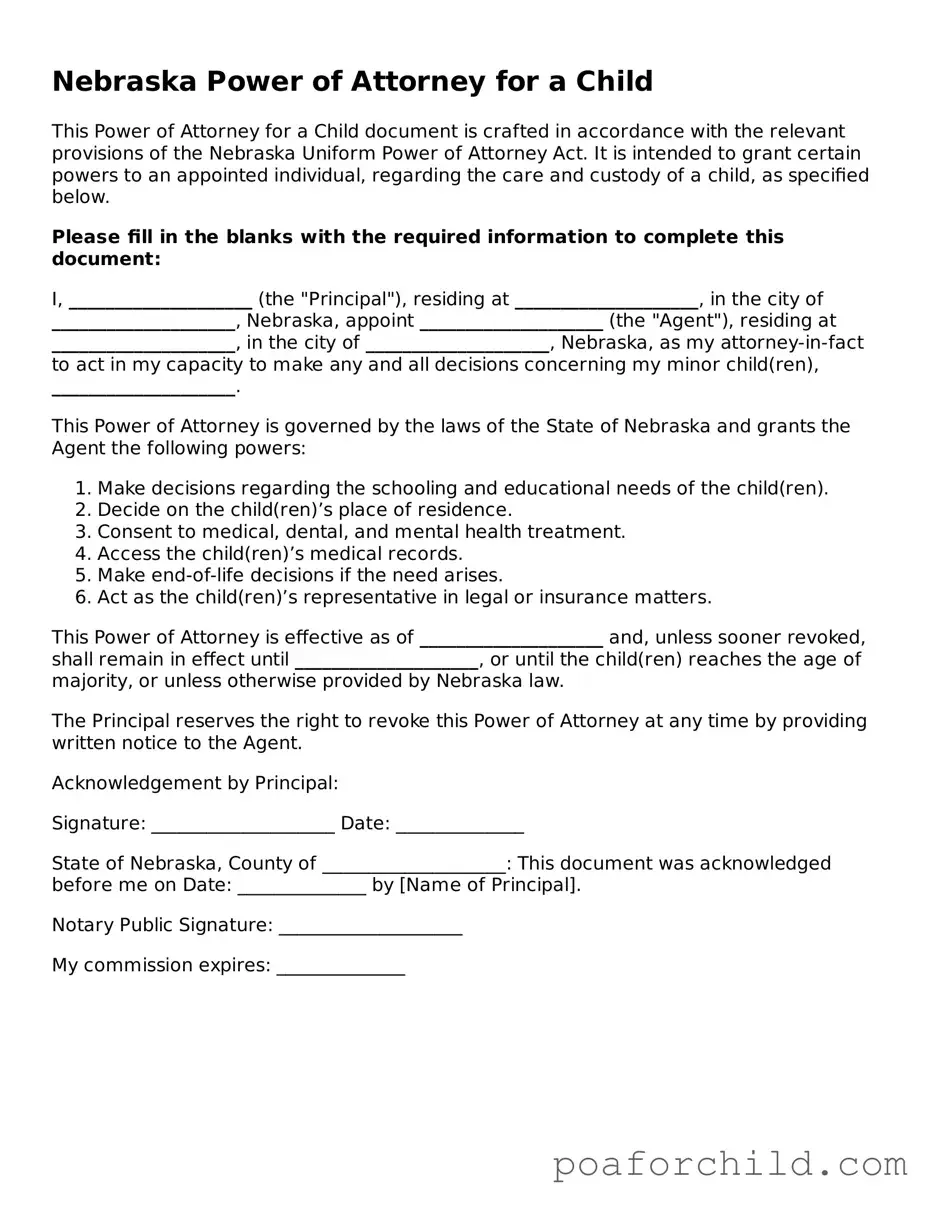Detailed Guide for Using Nebraska Power of Attorney for a Child
Granting someone the power to make decisions on behalf of your child is a significant step that ensures their wellbeing is continuously safeguarded, especially in moments when you might be unavailable due to various reasons. It's crucial to meticulously complete the Nebraska Power of Attorney for a Child form to ensure all legal standards are met and the designated individual can lawfully act in your stead for matters concerning your child. Below are the steps to fill out this form accurately. Pay close attention to each detail to avoid any mistakes that could potentially delay or invalidate the document.
- Begin by entering the date on which the Power of Attorney will become effective. Ensure this date is clear and correct, as it determines when the appointed individual will start their responsibilities.
- Next, provide the full legal names of the child or children for whom the Power of Attorney is being established. It is essential to spell these names correctly to avoid any confusion regarding whom the document pertains to.
- Fill in the full legal name(s) of the parent(s) or current legal guardian(s). This indicates who is granting the power to the designated individual.
- Specify the full legal name of the individual who is being appointed as the attorney-in-fact or the one who will have the authority to make decisions for the child. Accuracy here is crucial for legal validation.
- Detail the powers being granted. This should cover what decisions the attorney-in-fact can make on behalf of the child. Be thorough in listing these to avoid any ambiguity or overstepping of granted powers.
- Include any specific limitations to the powers granted if there are decisions or areas you wish to exclude from the attorney-in-fact’s authority.
- State the duration for which the Power of Attorney will be valid. If there is a set expiration date, ensure it is clearly mentioned. This could be a date or upon the occurrence of a specific event.
- Both the granting party (the parent or legal guardian) and the attorney-in-fact must sign the document in front of a notary public. The presence of a notary ensures that the signatures are validated, making the document legally enforceable.
- Finally, have the document notarized. The notary public will fill out their section, confirming that all parties have signed the document in their presence and that they have verified the identities of those signing.
Upon completing these steps, the Nebraska Power of Authority for a Child form will be fully executed and in effect. It is then advised to keep copies of the document in a safe, accessible place and to provide a copy to the attorney-in-fact. This ensures that the appointed individual can demonstrate their legal authority to act on behalf of your child when necessary. Remember, this form can be revoked at any time by the parent or legal guardian, provided that the revocation is done in writing and follows the legal requirements for such actions in Nebraska.
